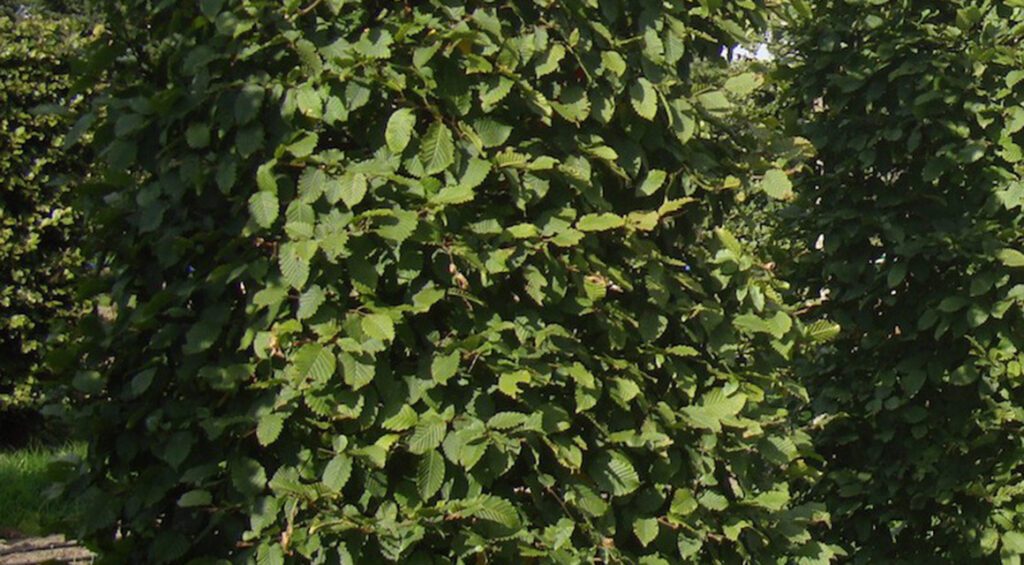We regularly hear the following question from garden owners: what hedge plant can I plant on a wet soil? Almost most hedge plants, in fact, can not tolerate wet soil well. The permanent wetness can even cause the roots of some plants to start rotting. But it can also make the leaves of your hedge look unsightly, and it can create unsightly, dried-out areas within the hedge. Fortunately, there is still one hedge plant that you can use well if you have a wet garden soil: the hornbeam. The hornbeam is the ideal hedge plant for wet soil. In this blog article, we’re happy to share a few tricks about this hardy and impressive hedge plant.
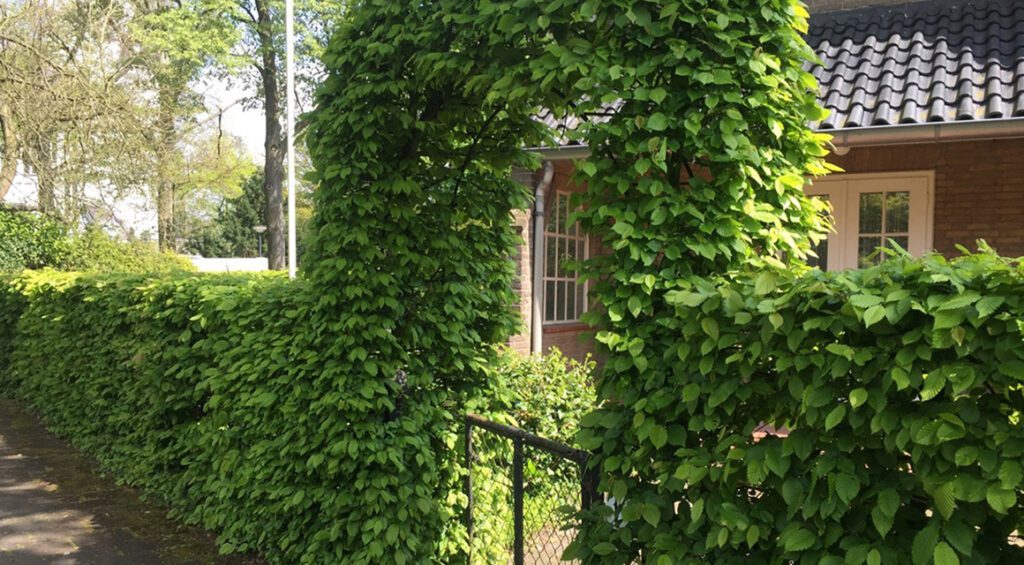
Contents
Deciduous magic
Hornbeam, or Carpinus betulus, is often confused with the beech hedge. Nevertheless, these are different hedge plants: while the beech hedge belongs to the beech family, the hornbeam belongs to the birch family. This confusion is understandable: in fact, there is a great similarity between both hedge plants. Another difference is that the hornbeam is deciduous, while the brown-colored leaves of the beech hedge remain on the branches long into the winter. Although the beech hedge is popular, the hornbeam also has a certain charm: namely, in autumn hornbeam leaves acquire a charming yellow color. In addition, hornbeam suits various garden designs.
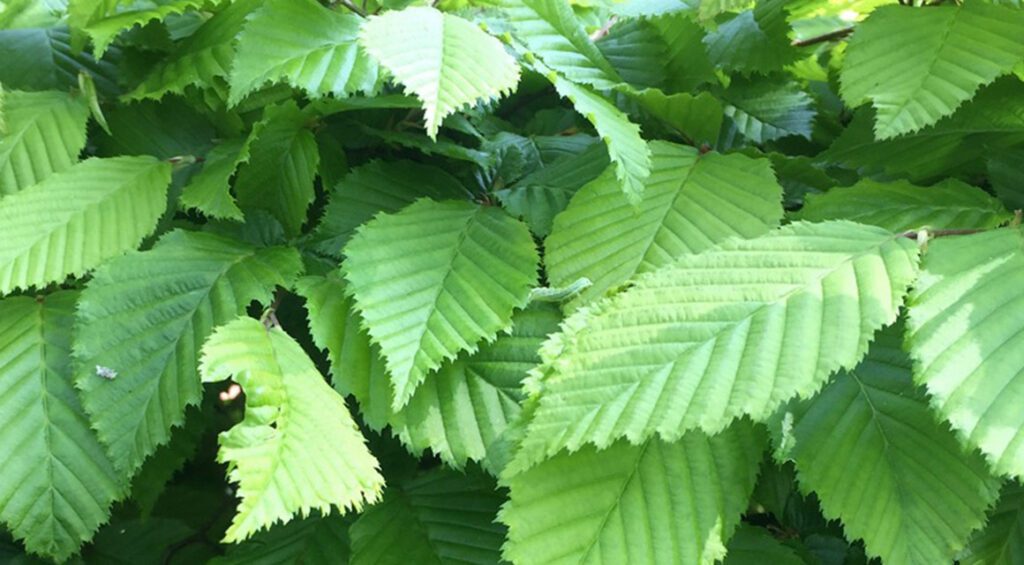
The hornbeam grows almost everywhere
Another advantage of the hornbeam is that it can grow anywhere, because it does not need to be planted in a specific garden soil. The hornbeam can also grow in wet soil, but other hedge plants would have a problem with it. It also grows well in coastal regions characterized by strong winds and salty sea air. Not every deciduous hedge plant can handle such conditions, but the hornbeam will live up to its expectations even on the coast. If you live in a rural environment or in the city with a lot of air pollution, then the hornbeam can also be used. It can grow in the sun or in the shade.
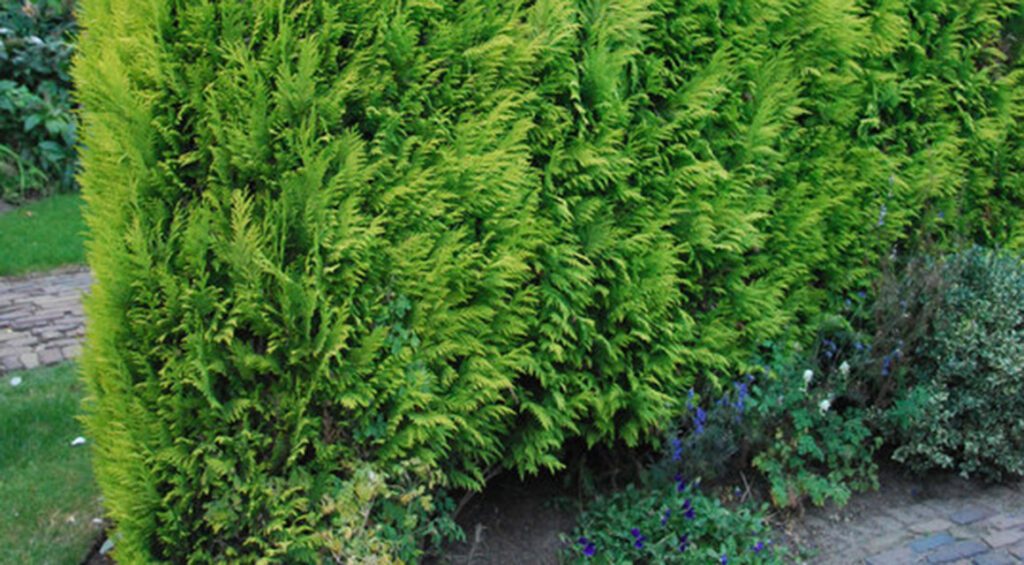
The hornbeam: a robust hedge plant.
The hornbeam is robust, which is shown by the fact that it is well hardy. The hornbeam grows around 20 to 40 centimeters per year. During the winter it sheds its foliage. Then in the spring all the plants sprout at the same time, so you quickly have a compact, opaque hornbeam hedge in the garden again. By the way, garden owners do not find the fact that the hornbeam is deciduous disturbing. This is due to the fact that the hedge plant has beautiful features. Hornbeam leaves look delicate, and because of this they can create a wonderful, natural atmosphere in your garden. Look from the living room directly at a fantastic hornbeam hedge, gorgeous!
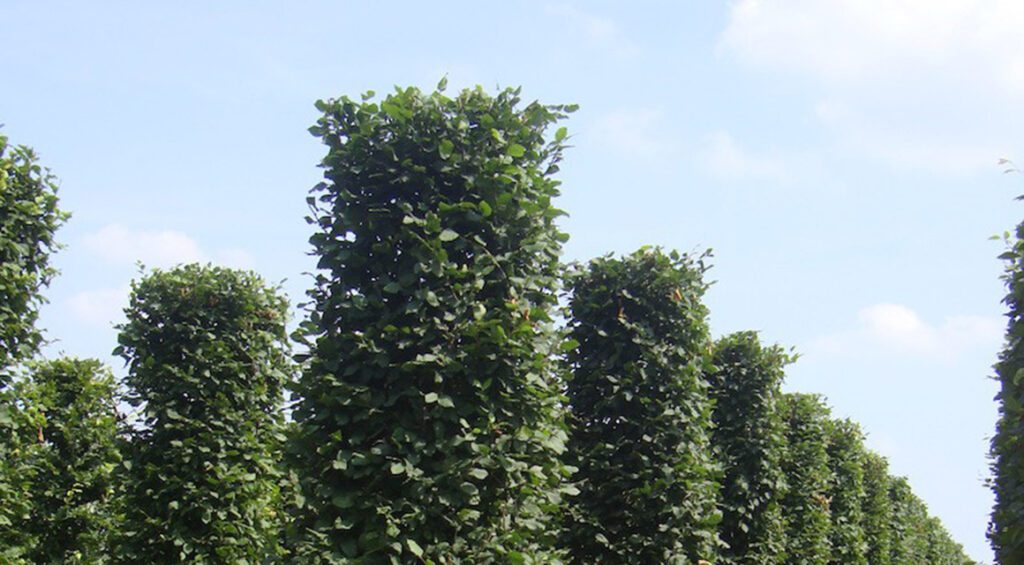
Also available as a ready hedge
The hornbeam can form low or higher hedges from 2 to 2.5 meters. However, you should not cut back a hornbeam immediately: in fact, pruning should be done only when your hedge has reached the height you desire. Some garden lovers do not have patience to wait for your hedge to grow, we can well understand that. That is why the hornbeam is also available in the webshop as a prefabricated hedge in different heights. Ready-made hedges are ideal if you want to immediately plant a mature, compact hedge that has the right height. You can also grow the ordered young plants yourself. At hedgeplantsdirekt.com you have the choice!
